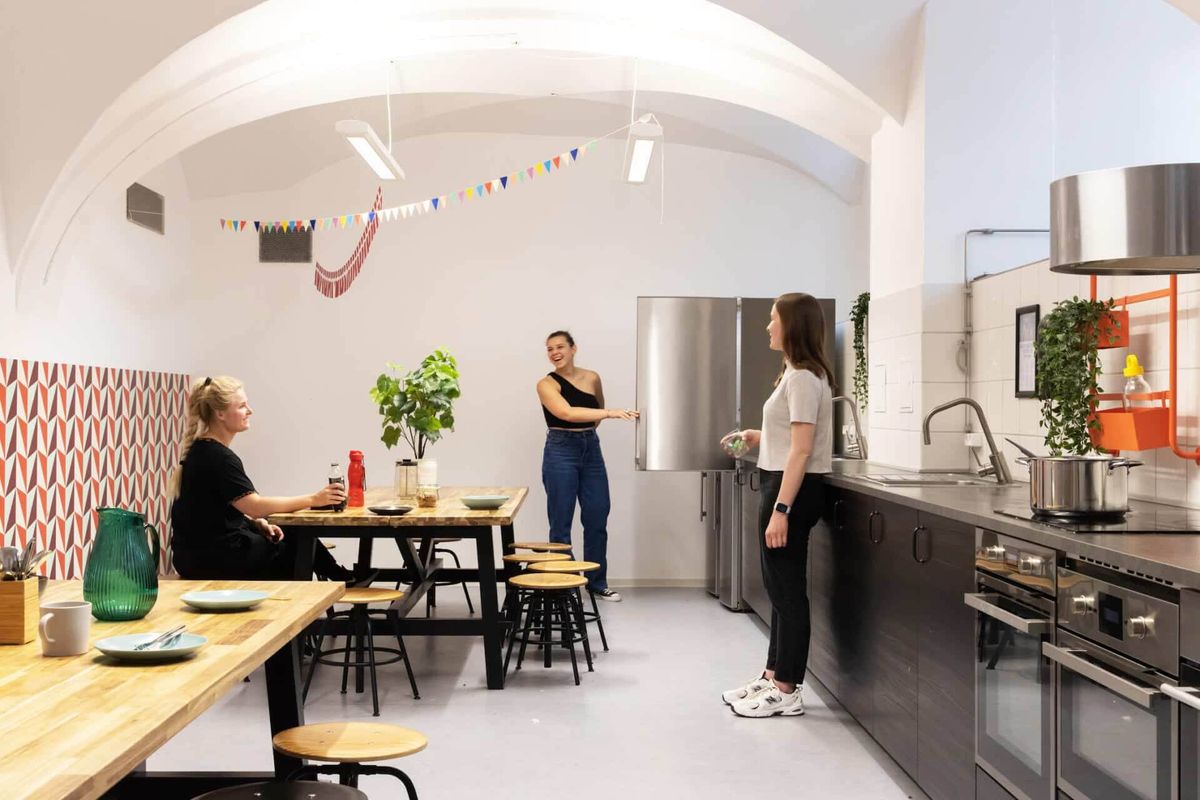Finding Shared Accommodation in Copenhagen, Denmark: A Student Guide
Moving to Copenhagen for your studies? With over 7,000 international students annually at the University of Copenhagen alone, securing accommodation can be challenging. Explore kollegiums for community living or shared apartments for flexibility.

This is it! You've done it. All the university applications have been filed out, all the paperwork submitted, and the acceptance letter has finally made its way into your hands. As you pack your bags, you breathe a sigh of relief – you feel ready to take on a new adventure into one of Europe's most vibrant student cities: Copenhagen, Denmark. Moving to a new country can be thrilling, but it also comes with its own set of challenges. One of the most important tasks for international students moving to Copenhagen is finding suitable accommodation.
Copenhagen consistently ranks as one of the most student-friendly cities globally due to its high quality of life, safety, and outstanding educational institutions. The University of Copenhagen alone attracts around 7,000 international students annually, and Copenhagen Business School boasts an international population of over 4,000 students. This multicultural student population contributes to the city's lively and diverse atmosphere.
However, with thousands of students arriving each year, accommodation in Copenhagen can be tricky to secure. The demand for student housing far exceeds the supply, leading to intense competition for available spaces. According to a report from the University of Copenhagen, around 40% of students face challenges finding affordable accommodation in the city.
This blog is here to guide you through the process of choosing then finding suitable housing for yourself, as a student about to embark on your own educational journey through Scandinavia.
Types of Student Accommodation in Copenhagen
Kollegiums
Kollegiums, also known as student dormitories, are a popular choice for both local and international students in Copenhagen. Unlike university-specific housing, kollegiums accommodate students from various educational institutions across the Greater Copenhagen area. This diversity creates a unique social atmosphere where you can meet peers studying diverse disciplines, share experiences, and build long-lasting friendship. Copenhagen hosts around 290 kollegiums with more than 34,000 student homes, offering a wide variety of accommodations to suit different preferences and budgets.
Kollegiums typically offer shared kitchens, common areas, and sometimes private bathrooms. Living in a kollegium also has its own unique features, such as access to community events including organized dinners, TV nights, and social activities, in addition to their famous social atmosphere and largely affordable prices, ranging from 3,500 - 5,000 DKK per month.
To apply for living in a kollegium, websites like kbh-kollegier.dk and DIS Kollegiums offer comprehensive kollegium listings with application guidelines. Most kollegiums require applicants to be under 30 and enrolled in a study program in the Greater Copenhagen area. It advisable to apply up to three months before starting your studies. Include a motivational letter to enhance your application.
Shared Apartments
Shared apartments provide a fantastic alternative to other student housing types, offering a unique blend of affordability, flexibility, and social opportunities. Unlike kollegiums or dormitories, shared apartments give you more freedom, privacy, and control over your living environment while still fostering a communal atmosphere.
The average cost of a room in a shared apartment in Copenhagen ranges from €580 to €800 per month, or approximately 4,300 to 6,000 DKK. However, you can find more affordable options starting at around €500 per month (approx. 3,700 DKK). Renting an entire apartment is typically more expensive, ranging between €900 and €1,500 per month (approx. 6,700 to 11,200 DKK). The cost varies based on the apartment's location, size, and amenities. However, sharing this expense among roommates significantly reduces individual rent.
Shared apartments are more affordable than renting a private apartment, and you can still benefit from communal living without the limitations of dormitory life. In shared apartments, you often have the option to select your flatmates, ensuring a harmonious living environment. Plus, living with international students or Danes provides an opportunity for cultural exchange and language learning.
Shared apartments are often available in student-friendly neighborhoods such as Amager, Vesterbro, and Nørrebro, all within convenient distances to universities and city amenities.
How can I find shared apartments in Copenhagen?
Online Platforms and Agencies
Finding shared apartments in Copenhagen can be straightforward if you use the right resources and plan ahead. Online platforms dedicated to student housing are a great starting point. The Housing Foundation Copenhagen is an excellent resource, offering shared apartments specifically for students.
If you're looking for roommates and a room to rent in Copenhagen, Hemavi offers a convenient way to start your search. Through a user-friendly interfaces and different search options, you can easily filter your search based on your preferences, including location, rent, and roommates' age and gender. Plus, you can set up alerts to receive notifications when new listings that match your criteria are posted.
Hemavi also takes it a step further with a matchmaking algorithm that not only helps you find shared accommodation but also matches you with a compatible roommate. By using Hemavi's platform, you can avoid scam rental ads, find a suitable roommate, and even sign up for additional services such as insurance, storage spaces, and moving.
Social Media Groups
Social media and community groups provide another layer of access to potential roommates and available apartments. Facebook groups like "Accommodation in Copenhagen," "Housing in Copenhagen," and "ESN Copenhagen" regularly feature listings and flatmate requests.
When it comes to using social media, a few tips to keep in mind:
- Post Introductions: Introduce yourself with a post detailing your budget, preferences, and moving dates.
- Browse Frequently: Check posts daily to catch new listings early, especially during peak months like August and September.
- Use Keywords: Search within the group using terms like "shared apartment," "roommate," "rent," or "sublet."
- Be Cautious of Scams: Avoid sending deposits without verified contracts or documentation.
University Housing Services
Your university's housing services may also offer assistance. For instance, the Housing Foundation collaborates with the University of Copenhagen to provide listings. You can also utilize the CBS Housing Department if you're a student at Copenhagen Business School.
Conclusion
Finding suitable accommodation is one of the biggest challenges for international students moving to Copenhagen, but with the right resources, it's a hurdle that can be easily overcome. Whether you're inclined towards the lively and communal atmosphere of kollegiums or prefer the flexibility and independence of a shared apartment, understanding your options and preparing in advance is crucial.
Shared apartments provide another layer of affordability and flexibility, often available in student-friendly neighborhoods such as Amager, Vesterbro, and Nørrebro.
If you're still looking for shared accommodation in Copenhagen, check out our listings at Hemavi. We can help you not only find a good place to live, but also choose your roommates based on compatibility!




Comments ()